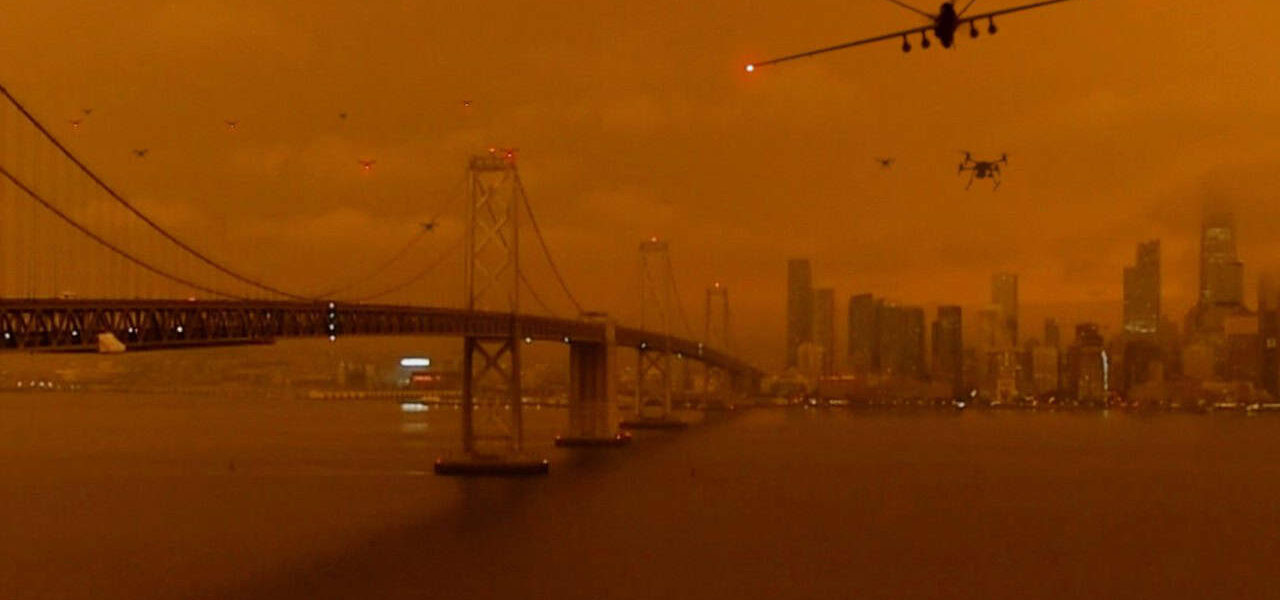By Robert Scucci
| Published

If you wonder why speculative and apocalyptic science fiction thrillers are not often presented through a documentary framework focused on real global events and public figures, it is because it leads to disasters like 2073; A film with a clear message that is delivered is the public in the most disjointed way possible. As ambitious as this film may be, it is incredibly difficult to watch and highlights a unique problem: it is not allegorical, but rather Also real to manage. I would have liked to be as original as the critic Rotten Tomatoes Glenn Dunks, which simply described this film as “Doomscrolling: The Movie”, because that is exactly what 2073 is despite the promising vignette and the synopsis that you will see when you are looking to broadcast the title on Max.
I’m not crazy, I’m just disappointed, because even if 2073 is classified as a documentary and a thriller, it is, as, at 10% thriller, if that, and the rest is just the kind of thing you will see while passing through your Instagram flow in a panic while asking ourselves how really we are to the dystopian reality which, according to the film, we approach quickly.
The future is a dark place in 2073

2073 Begins with the promise because it follows the point of view of a lonely woman simply known as “ghost” (Samantha Morton). Living under an abundant shopping center for a long time with other condemned humans, Ghost’s narrations explain how much Fargone has become and aims to tell a story about the way humanity has arrived in such a dark destination. In a constant fear of investigating and silencing (killed) the government, Ghost Duves plunges for food and supplies when he is sure to do so, and withdraws underground in his dilapidated compound occupied by other survivors who are just as worse for wear.
And let me tell you that these post-apocalyptic scenes are absolutely superb. I wanted to know more about the functioning of the company in 2073, and I would have loved to see more. The hierarchy of power, the desire to re -educate the masses so that they can reverse their oppressors, and the state of constant surveillance that the company lives is captivating, to say the least, and this fictitious but unfortunately credible framework is a fertile land for the narration of the following level on the next chapter in our collective history.
Well, it was dark

The best part of 2073 The sequences take place in the dystopian future which will fulfill any spectator supposed to an absolute feeling of concerted efforts to put itself on the right side of history and prevent such a dark future from performing.
In other words, 2073 Try to be two different films: a Dystopian science fiction Thriller has placed in the not so distant fictitious future, and a documentary using real archival images these days had used to explain how this dystopia had been created.
But this is where the problem lies.
While watching the documentary sequences that make up most of the 2073 Execution, I felt like Alex de An orange on the wheelsWho was forced to sit in front of the open -eye televisions so that he can admire all the images at an alarming pace. This type of delivery strips the most interesting mysticism of the story – the fiction which takes place in 2073 – which could have been used as a vehicle to offer solutions for a company which was motivated underground by the powers in place.
Two different films in one

Although I appreciate what 2073 I was trying to accomplish, it left a bad taste in my mouth because he presented himself as if he preached a choir which is already aware of the current state, but who feels helpless to act significantly to prevent things from getting worse.
We already know that wealth is concentrated in such a way which maintains the working class under the thumb of its sovereign. We already know that politicians and technological technologies scan humanity under the carpet, so some people selected in power can explore space while the rest of us suffer. We already know that billionaires of data exploration and chronically online warts online are a terrible combination for humanity, because it suggests how artificial intelligence will soon control the masses because it finds a way to become more intelligent than humans it aims to manipulate.
It’s good, but what do we do about it? The interesting story – the story I wanted to see – in 2073 This is how future humans face the collapse of society and turn to a better future. What we get instead is a quick news feed nowadays that is scratched in our eyeballs as if to say “there is nothing that you can do on this subject” and “we are already condemned”.
Streaming 2073 on max


If you are looking for an ultra-converted overview of current affairs, as indicated by various sources of information, which leads to a representation at high concept of the future which could very well become a reality, then 2073 could stint your interest. But if you expect to see how humanity aims to get out of the ashes through its speculative science fiction Contest, you will be seriously disappointed. By juxtaposing real and current global events with what is all measures a work of fiction, 2073 Lack the brand on the two fronts because it is real, it is frightening, and it offers a disturbing vision of the way we walk collectively on an alarmingly alarming path, but never uses the fiction it establishes to explore in a significant way how we are going to get out of this apparently inevitable mess.
2073 Gets an A for effort and concept, and an F for execution. If you want to see how spoiled the world is just launch your information applications or go up on Tiktok or InstagramTo get an intensive course because it is fundamentally the same thing. If you just want to end it quickly and move on, you can broadcast 2073 on max.




